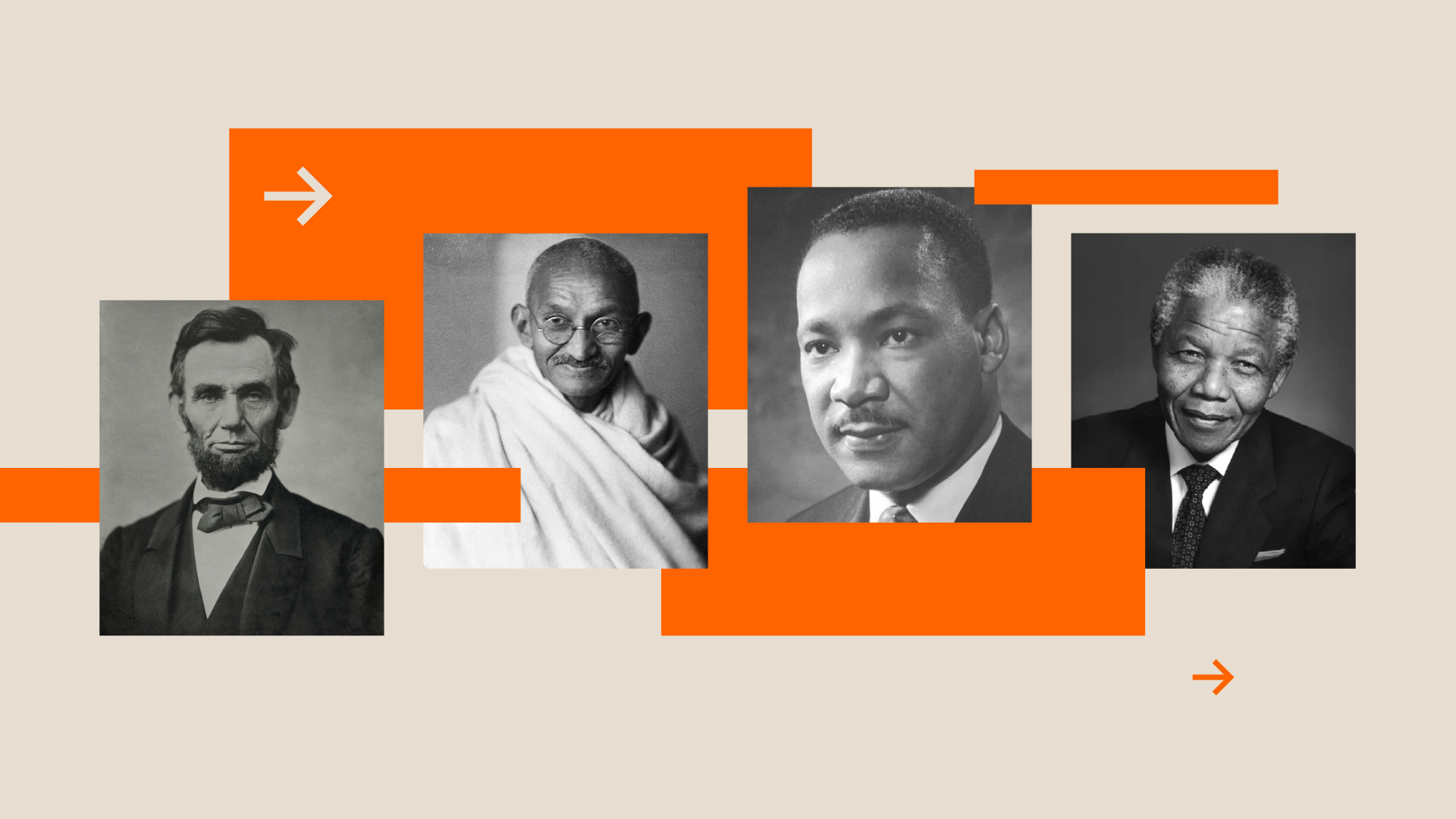The Power of a Good Example
Men and women in formal authority sometimes demand respect before they have earned it. Their subordinates may defer to their role or position, but they will not grant them moral authority—the power that stems from setting a good example—until it is proven. Without humility, it’s tempting for leaders to demand respect on the basis of their position alone.
People who demonstrate integrity and good character live up to their values and influence others by their example. They may not be authority figures in any formal way, but we recognize their moral authority nonetheless, because they consistently live up to a code: doing good, not merely talking about it.
This can be easier said than done. Leadership consultant Keshavan Nair noted that “courage is the foundation of integrity”—and courage often means taking the path that most do not. It means always standing up for what is right in the face of opposition to truth and values. While no human being follows the path of values perfectly, those who over time exhibit integrity of thought and action with courage demonstrate why they have gained a degree of moral authority.
Religious belief often underlies the lives of those who have become well-known moral pioneers. This was certainly the case in the life of Abraham Lincoln, whose biblical convictions informed his sense of justice and equality. He eventually came to believe that it was his duty to end slavery. Mahatma Gandhi’s nonviolent resistance, along with his dedication to truthfulness, love and personal change, stemmed from his practice of the ethical and spiritual principles of Hinduism and the teachings of the New Testament.
Similarly, Martin Luther King Jr., inspired by Gandhi, believed in nonviolence and in Jesus Christ’s teachings about love for enemies, justice and true freedom. Nelson Mandela’s moral reputation was founded on his enduring opposition to apartheid and his struggle for the rights of Black South Africans. He acknowledged his debt to Martin Luther King Jr. and to Gandhi, who helped shape and reinforce principles of nonviolence in the African National Congress. Mandela’s moral standing was amplified by his peaceful endurance while imprisoned for 27 years; by his refusal to compromise his cause when offered freedom in return; and by the conciliatory and forgiving leadership he ultimately gave his country. Though Mandela’s personal religious beliefs were a little hard to discern, he was raised a Christian by his Methodist mother and continued to have a strong relationship with the church during his presidency.
“Let your light so shine before men, that they may see your good works and glorify your Father in heaven.”
These diverse examples clearly demonstrate the universal nature of Christ’s teaching, but there is much more to consider. What, then, can we say about His moral authority? Christ’s teaching is just one aspect, expressed in part in what is known as the Sermon on the Mount, a lengthy address given to His disciples to describe the essence of the transformational way of life He brought. Recorded in Matthew’s Gospel account, the teaching extends across three chapters, but the core is found in just eight statements known as the Beatitudes, or blessings.
The Beatitudes speak to our need to rely on God’s loving sovereignty over human life; to spiritual sorrow over the human condition; to humble openness to God’s instruction; to earnestness to receive spiritual food; to the need to express compassion or mercy to all; to achieve inner purity of heart; to actively seek peace with everyone; and to accept that opposition will come to those who seek the qualities that comprise the right way. If the followers of Christ do not get these basics right, if they do not make them the foundation of their lives, there is no chance that the remaining detailed instruction in right living will be meaningful. But if they do these things, they will emulate their Teacher and be known for their good example.
Christ’s moral authority extends beyond His teaching. His influence lies in the fact that He doesn’t expect anything of us that He did not exemplify in His own human life. And in His case it included a voluntary death that paid the penalty for the sin of everyone on the planet. That is the mark of the ultimate moral teacher.

